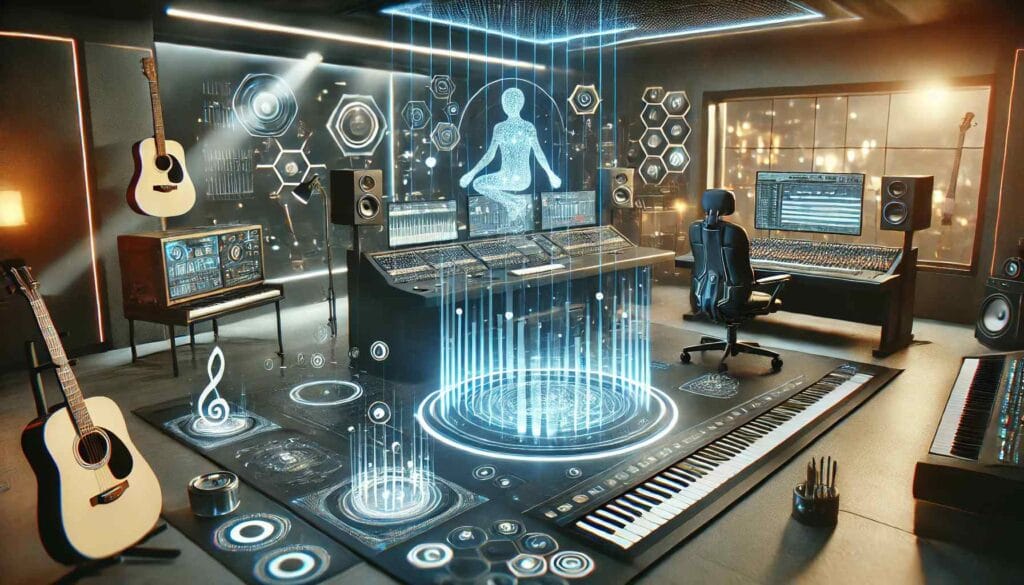The Impact of AI on Music Composition

Artificial Intelligence (AI) has significantly transformed various industries, and the music industry is no exception. From music creation and production to performance, AI is influencing how music is composed, produced, and experienced. This article explores the role of AI in music composition and the potential implications for the future of the industry.
1. AI in Music Composition: An Overview
AI systems have the ability to analyze vast amounts of data and generate new music based on patterns and structures identified in existing compositions. These systems use algorithms, often based on machine learning techniques, to mimic musical styles or create entirely new ones. Some AI platforms, like OpenAI’s MuseNet and Google’s Magenta, can compose original pieces of music in various genres, blending elements from classical, jazz, electronic, and even pop music.
2. How AI Composes Music
AI music composition tools generally work by being trained on large datasets of existing music. By analyzing thousands or millions of pieces of music, AI systems learn the key elements of musical structure, such as melody, harmony, rhythm, and instrumentation. Once trained, the AI can generate new compositions by combining learned patterns in novel ways.
AI can also be used in generative music systems, where music is created in real-time based on certain inputs or rules. For example, AI can generate background scores for video games or films, adapting dynamically to the action or emotion of a scene.
3. Collaborative Composition: AI as a Tool for Musicians
Rather than replacing musicians, AI can be a tool for collaboration. Musicians can use AI to assist in the creative process, offering new ideas, melodies, or chord progressions that may not have been considered otherwise. AI can be used to enhance the creative process in various ways, such as:
- Generating New Ideas: AI tools can generate melodies, harmonies, and rhythms that inspire musicians to explore new directions in their compositions.
- Music Arrangement: AI can assist in arranging and orchestrating compositions, suggesting different instrumentations or musical structures.
- Improvisation: AI-powered systems can accompany musicians in real-time, improvising and reacting to live performance. This feature is particularly useful in genres like jazz or electronic music.
4. Impact on Music Production
AI is also revolutionizing music production. AI-driven software can help with tasks like mixing, mastering, and sound design. For example, AI tools can analyze a track and suggest improvements or automatically adjust the levels of different instruments to create a balanced mix. AI can also help identify trends in popular music, enabling producers to tailor compositions to current tastes or predict future trends.
Additionally, AI’s ability to generate realistic synthetic sounds has led to the development of virtual instruments, making it easier for producers to create complex arrangements without needing access to expensive or hard-to-find instruments.
5. Challenges and Ethical Considerations
While AI has made significant strides in music composition, it raises several challenges and ethical questions. One concern is the issue of authorship and ownership. If an AI creates a piece of music, who owns the rights to the work? Should the AI be credited as the composer, or should the developers behind the AI take credit?
There is also the potential for AI-generated music to flood the market, leading to an oversaturation of content. This could make it more difficult for human composers to stand out, especially in platforms where AI-generated music is indistinguishable from human-created works.
Another ethical concern is the potential for AI to replace human musicians or composers, leading to job losses in the music industry. While AI is unlikely to fully replace human creativity, it may change the role of musicians and composers in the future.
6. The Future of AI in Music Composition
As AI technology continues to evolve, its role in music composition is likely to grow. The future could see AI systems that are even more adept at understanding and creating music in ways that mirror or even surpass human creativity. These systems could work in collaboration with musicians, enhancing the creative process or enabling entirely new genres of music to emerge.
AI could also play a role in personalized music creation, tailoring compositions to individual listeners based on their preferences, mood, or even biometric data. This could lead to more immersive and dynamic listening experiences, where music adapts to the listener’s emotional state or environment.
7. Conclusion
AI is revolutionizing the world of music composition, offering exciting possibilities for musicians, producers, and composers. While it presents challenges in terms of creativity, ownership, and job security, AI also offers new tools for collaboration and innovation. As AI continues to evolve, it will undoubtedly play an even larger role in shaping the future of music and the way we experience it.
Source : Medium.com




